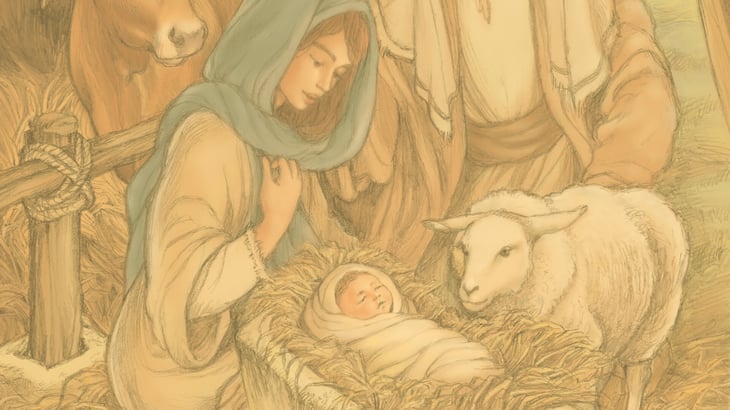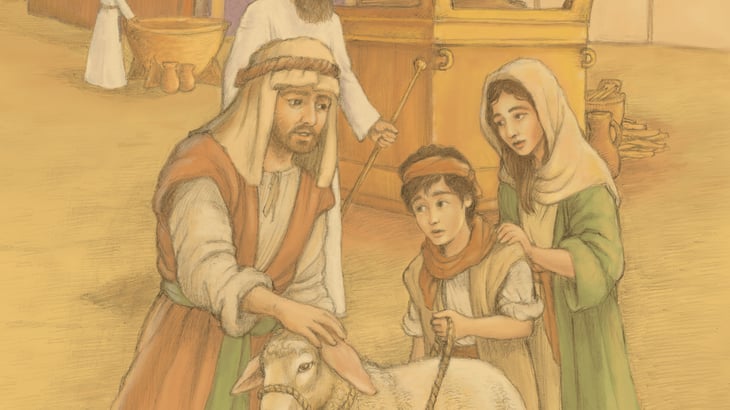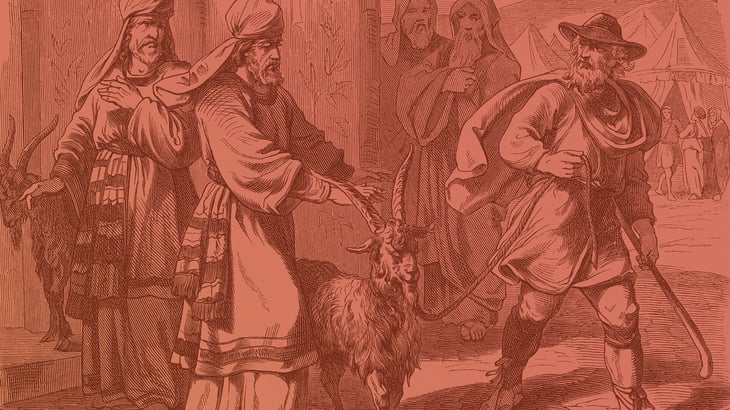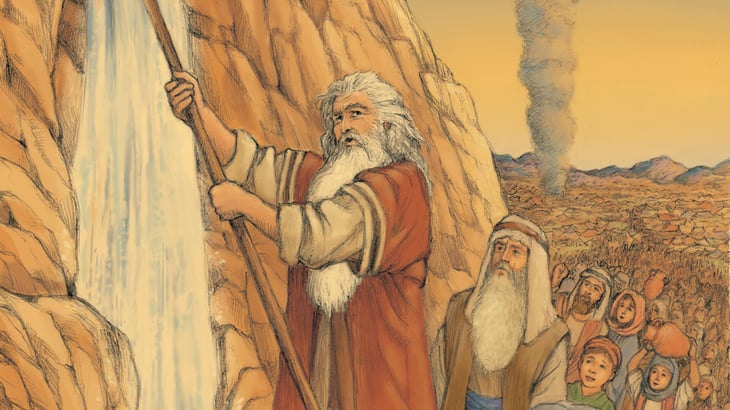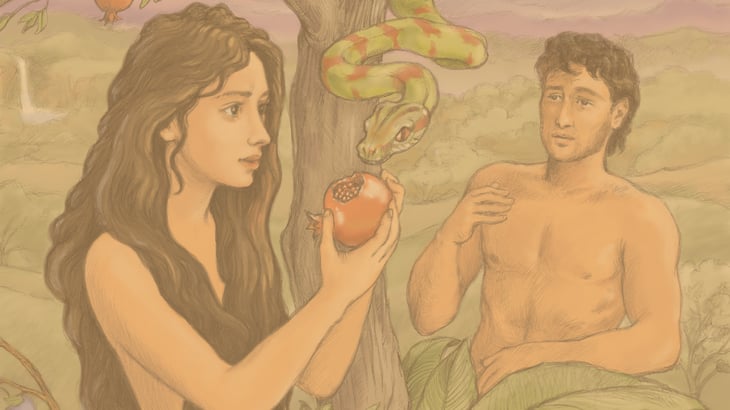Recent Posts by Phil Rigdon
Find Peace by Fearing God in Isaiah 8
There is peace to be found in the fear of God.
One of the practices our nation has had to adopt in the face of COVID-19 is contact tracing, identifying those with whom the infected person has had contact, and taking measures to isolate and treat such persons to control the spread of the virus. Sally contracted the virus from Dave, who contracted it from Arnold, and so forth.
The people of Israel had a virus of sorts, one from which they never seemed to be able to extricate themselves: that of adopting the idolatrous practices of those with whom they had contact. Throughout the history of the Israelites, they struggled to maintain purity in their worship to the Lord, instead taking on the beliefs and practices of the Egyptians, Assyrians, Babylonians, and so forth. This went on for generations. Like COVID-19 and contact tracing, the path and growth of this faithlessness to the Lord can be tracked. The people decided to fear the gods of those around them more than the one true God.
Jesus, the Silent Redeemer of Isaiah 53
The text of Isaiah 53 is one of what are called the Servant Songs—portions of Isaiah’s prophecy that refer directly to Jesus Christ and His work of redemption. It can’t be overstated how good these words must have sounded to the people of Israel. Isaiah writes at the end of the Assyrian occupation of the Northern Kingdom, before the destruction of Assyria and subsequent occupation of Babylon.
God Redeems and Preserves His Children
David understood the reality of his own mortality. As king, he represented a people who lived under constant threat from foreign enemies, foes who would gladly have seen the Lord’s beloved die. Nevertheless, as we read in Psalm 16, David expresses relief and confidence, not that he would never die, but rather that he would not remain in the grave.
David and Goliath: God Alone Provides Victory
God’s answers are not always discernible.
David’s successful encounter against Goliath has been an inspiration to believers and unbelievers alike since the event took place and was recorded. A small shepherd boy vanquishes the enormous, battle-hardened warrior Goliath, brandishing sword and spear. The victory is an affirmation of God’s power and His love for David.
The Miraculous Births of a Judge and a Savior
There are roughly eight billion people on earth, and that number is growing. As a result of improved economies, cleaner water, more productive farming, stabilized governments, and better medicine, the world’s birthrate has increased, and infant mortality has decreased. Not all countries have increased birthrates, however. In the United States, for example, the population is increasing, but ever so slowly. One would think, with the wealth of the United States, the population would be burgeoning. Yet parents have smaller families than in the past, and hundreds of babies are aborted each day.
Teaching Jesus in the Old Testament: Joshua 2
A book I read recently suggests that, given the increased use of electronic media (television, cell phones, social media, iPad, the internet) our collective attention span has shrunk. Although we might like short commercials, the fifteen-second ads of recent years have decreased our ability to remain focused on a particular point. News briefs move from one to another at lightning speed. The internet moves information across our computer screens as quickly as we can absorb it. This ease of access to information has also affected our capacity to recall information because our brains are in a constant state of saturation.
Teaching Jesus in the Old Testament: Leviticus 24
I am weary, but God never tires.
In March, our congregation reached the one-year anniversary of making ministry changes in light of COVID-19. Recently, we have relaxed some of these changes after more than ten months of online worship, Bible study, and devotions. Our school was online-only for quite a while. All of this has been in addition to social distancing, masks, and damage to the economy. Even as we move close to “normal,” there is palpable, shared exhaustion. It is physical, emotional, psychological, and spiritual.
Teaching Jesus in the Old Testament: Leviticus 16
Jesus was cast out that sinners would be welcomed in.
After illness and death, perhaps the greatest COVID-related challenge is isolation. People living normally social lives have sequestered themselves in their homes to avoid the illness. Those in hospitals and nursing care facilities have endured months without visits from family and friends. Some have passed away without the comforting presence of loved ones. Beyond COVID, isolation remains troubling. Criminals are housed in prison. Spouses divorce. School children bully and reject each other. Teachers place unruly students in detention. Each of these examples illustrates a disquieting, but ultimately comforting concept in Christianity.
Teaching Jesus in the Old Testament: Exodus 17
Everyone knows what it’s like to be thirsty. Maybe you’ve just come in from working in the yard all afternoon. Perhaps a five-kilometer run left you parched. Your child gets up in the middle of the night for a glass of water after eating too many cookies at dinner.
The Israelites had a powerful thirst. They were traveling in the dry wilderness, with very few natural sources of water. As we explore Exodus 17 in relation to teaching Sunday School, it is important to keep in mind what has happened to the people of Israel. God has been faithful. He delivered them from slavery, led them out into the desert through the sea, and provided food in the form of quail and manna. Nevertheless, the people complained and distrusted God.
Teaching Jesus in the Old Testament: Genesis 3
To get the most out of Genesis 3, it is important to recognize what happens prior to the events of this chapter. In the beginning, God created the heavens and the earth. Then God created light with a mere word. He followed with the creation of the lights in the heavens, plants, and animals. He topped this creation with Adam, formed of the dust. God made man in His image and breathed life into him, both physical and eternal. Adam was His greatest creation. Because Adam did not have a suitable partner, God created Eve using a rib from Adam’s side. Adam and Eve were perfect for each other. Despite all these blessings, Adam and Eve listened to the serpent. They chose of their own free will to disobey God.






